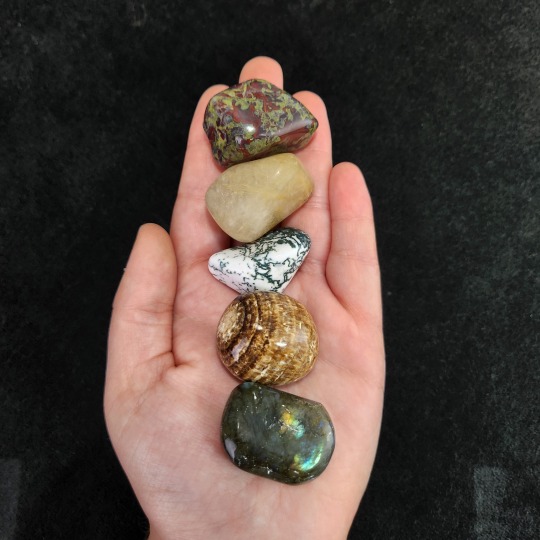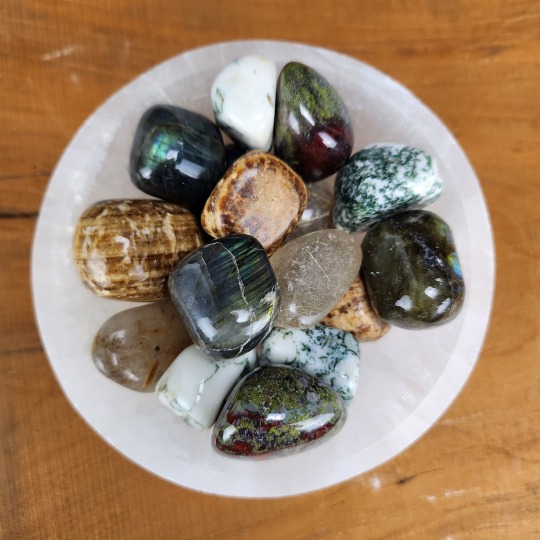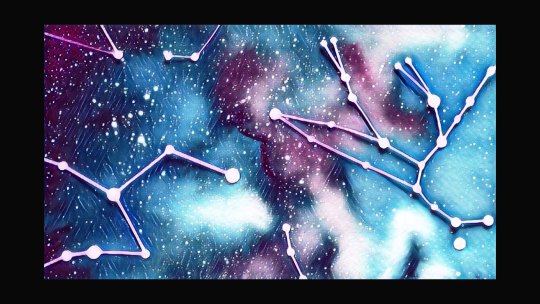#chinese metaphysics
Explore tagged Tumblr posts
Video
youtube
Exploring the Essence of Change, Revolution, and Evolution
Yi Jing, also known as the "Book of Changes," is a fascinating ancient Chinese oracle and wisdom system that offers profound insights into the dynamics of change, revolution, and evolution.
It's like having a cosmic playbook for life's twists and turns. Through a system of symbols, hexagrams, and lines, Yi Jing helps us understand the ebb and flow of situations, guiding us on how to respond wisely.
So, whether you're facing a curveball or plotting your next move, Yi Jing, this centuries-old guide (or language) offers us insider info on the Dao and it's messages to us.
#youtube#yijing#ijing#iqing#joey yap#joeyyap#metaphysics#chinese metaphysics#astrology#chinese astrology#bazi#qimen#self improvement#motivation#motivational#business
3 notes
·
View notes
Photo


(via The Many Ways of Reading the I Ching)
#i ching#yi jing#chinese metaphysics#chinese medicine#astrology#chinese astrology#divination#fortune telling
0 notes
Video
youtube
From Desk-Bound To Des-Tiny : A Metaphysical Awakening
In this episode of In The Spotlight, I'm very delighted to introduce to you my good friend @KevinChanBazi . He does Chinese Metaphysics and on YouTube and other social media platforms, he introduces the fundamentals and mechanisms of action of Chinese Metaphysics in both English and Cantonese which are especially helpful for many people, especially English speaking individuals, to understand and learn more about Chinese Metaphysics.
I would also like to congratulate Kevin for reaching 10,000 Subscribers on YouTube, an important milestone to helping even more people. I met Kevin in a very unexpected way. One day, I got invited to a fashion show as a VIP Content Creator / Influencer. I'm someone who doesn't know much about fashion but I tried my best to look the part by wearing the ONLY fashionable outfit I had in my wardrobe, my Wedding Tuxedo.
Not far from where I was standing, I was looking at an equally blur, not very friendly, and confused face of another person, standing by a light pole, who probably understands just as much fashion as me. I approached him and there were some awkward moments (Ray Mak is weird and always make people uncomfortable) but we quickly realize we were on the same boat and we went for dinner and beer with a few other friends, same boat minions, instead of staying for the entire fashion show.
In this episode of In The Spotlight, we talked about how Kevin started his early morning Livestreams and how he pivoted from writing blogs into Livestreaming and making videos. He shared about his setup and how important is streamlining his livestream processes. Here you'll be learning more about livestream processes, starting a channel, and how to have the least amount of resistance towards creating contents.
On the side, Kevin love visiting different restaurants and bars to wine and dine. He has a steadily growing Instagram page called EatinGods, which is also available on YouTube https://www.youtube.com/@eatingods . People would stumble upon good restaurants on his page and save them for future. After all, there are so many amazing restaurants in Malaysia, and other countries, that are yet to be discovered.
PS : Kevin is also the catalyst, push, idea and brains behind In The Spotlight. Like many introverts that look like extroverts, I'm someone who have a lot of fear talking to the camera but I'm very blessed to have many good friends who have much more to offer to the society than me, which I've never taken the time to realize, until I met Kevin.
Be sure to like, comment, and most importantly share if you find this podcast useful. Thank you very much and advance and Enjoy the Show! Feel free to make use of these timestamps to go to the topics that you're most interested in.
00:00 Intro 00:45 Ray Mak And Kevin Chan's First Meeting Picture 01:06 Kevin Chan As The Catalyst For In The Spotlight 02:28 Pivoting From Writing To Live-Streaming 04:08 Chinese Metaphysics As A Niche 05:52 How Do You Make Your Content Interesting? 07:48 How Did You Know That Chinese Metaphysics Would Be Something You're Passionate With? 12:00 Different Types Of Contents 13:10 Ray Mak As A Catalyst To Video Creation - YouTube 14:40 Two Main Categories Of Contents - BaZi and Feng Shui 16:27 Challenges And Roadblocks 20:43 Difference Between YouTube and Facebook 23:22 Curating Presentation Slides 25:24 Will You Run Out Of Topics? 26:34 Any Burnout? Deliberate VS Spontaneous 30:32 Importance Of Streamlining Processes 32:01 Words Of Wisdom
About In The Spotlight
I have been a content creator for almost two decades now as I've had the privilege to have started when all these platforms started. Over the years, I've made many great friends and have also enjoyed the many blessings from the Internet.
In The Spotlight is a Platform where my amazing content creators friends share their precious experiences so we can all learn together as well. I really hope you like it too.
Last but not least, special thanks to my good friend @KevinChanBazi ( http://www.youtube.com/kevinchanbazi ) for being the catalyst, push, idea and brains behind In The Spotlight.
This podcast was recorded with the amazing new BOYALINK - All-In-One Design Wireless Microphone System from @BOYA-mic . They are so sleek and easy to use!
Special Discount Link to my Boya Link (Enjoy!) : https://shope.ee/8zgRUMM75J
#inthespotlight #creator #contentcreator
Follow @KevinChanBazi YouTube : https://www.youtube.com/kevinchanbazi YouTube : https://www.youtube.com/@eatingods TikTok : https://www.tiktok.com/@kevinchanbazi Instagram : https://www.instagram.com/kevinchanbazi Instagram : https://www.instagram.com/eatingods Facebook : https://www.facebook.com/kevinchanbazi Twitter : https://twitter.com/kevinchanbazi
Talk to me : 🎵 Instagram ▸ http://instagram.com/makhonkit 🎵 Facebook ▸ http://facebook.com/raymakpiano 🎵 Twitter ▸ http://twitter.com/makhonkit
#youtube#kevin chan bazi#kevin chan#bazi#kevin#chan#metaphysics#chinese metaphysics#astrology#chinese astrology#qimen#feng shui#fengshui#qimendunjia#dunjia#ray mak#raymak#eatingods
1 note
·
View note
Text
Cultivation 102: Other Aspects of Spiritual Cultivation
Prerequisite post: Asian Spiritual Vocabulary & Concepts: Cultivation 101 In addition to cultivation meaning any kind of improvement, there is even more meaning to spiritual cultivation. This meaning explores our level of magical ability, and how it relates to our karma and reincarnation. “Cultivation” as Level of Accumulated Magical Ability Cultivation is often used as a shorthand for one’s…
#asian cultivation#asian mythology#asian spirituality#buddhism#chinese mythology#cultivation#hinduism#japanese mythology#karma#metaphysical#occult#samsara#spiritual#spiritual cultivation#spirituality
6 notes
·
View notes
Text
despair-based insomnia is truly the stupidest fucking thing. like ohhhh i was too sad too hard too long and now i won't go into the Dormancy Period™️ like shut uppppppppp. the human body and especially the brain is a clown show and i want my money back.
#fingerguns#the chinese joke abt how reincarnation is a skill#well then i would like to never reincarnate again thankssssssss#and yeah i'm gonna have to go 邪教 and find a different way than buddhist enlightenment because brother that shit ain't happening#look at me#i'm gonna need to tear a hole in metaphysical space-time and escape out the side of the circus tent for the clown show that is life
2 notes
·
View notes
Text
Purifying Practices Of The Lingbao School
These precepts for bodily and mental purification from the Lingbao school (靈寶派) are part of the Retreat ritual. They are expounded in the Explanations on the Lingbao Retreat: Protocol for radiant illuminations, precepts and punishments, lamps and prayers and included in the Taoist Canon. [1] However, this set of recommendations applies to any ascetic purifying practice. The text is presumably a…

View On WordPress
#ancient China#Chinese culture#Chinese mythology#Lingbao#neidan#self-cultivation#Shangqing#spirituality#Taoism#Taoist meditation#Taoist metaphysics#Taoist philosophy#Taoist practices
7 notes
·
View notes
Text
welcome to the year of the wood dragon!
it is officially the new year, and according to the lunisolar chinese calendar, it is a year of abundance, creativity, and transformation. a great time for unlocking potential and succeeding in goals, this year will especially bring prosperity in wealth or financial success
here are five stones that perfectly reflect the strengths of the year and can help amplify your success!




dragon’s blood jasper promotes courage and willpower, inspires love and compassion, and brings money and vitality
rutilated quartz encourages determination and personal growth, and brings hope, peace, and protection from negativity
tree agate encourages self-expression and pure happiness, and helps find comfort and joy in the small things in life
aragonite increases connection with Earth, teaches flexibility and patience, and encourages change and self-betterment
labradorite promotes new beginnings, transforms habits or perspectives, and amplifies manifestation
if you'd like a premade set of these tumbes for the new year, click the link below!
shop
#mmmproducts#tumble sets#2024#new year 2024#new year#chinese new year#year of the dragon#year of the wood dragon#dragon's blood jasper#jasper#rutilated quartz#quartz#tree agate#agate#aragonite#labradorite#witchblr#crystals#Melded Mind Metaphysical
6 notes
·
View notes
Note
How do you learn about all these philosophers in the first place? Feels like you've read all the wiki pages for every philosopher ever lmao.
( Also I've noticed a lack of ramblings about post 1900 philosophy. I wonder why hmmm)
I take philosphy in school lol. [In italy it's a mandatory subject in highschool just like literature and- any subject, actually. We have 12 and the only ones we can exchange depend of the type of highschool you choose and it's between greek and latin or physics and latin or coding and physics or latin and a third language.]
The lack of post-1900s philosphers is because one my favourite part of philosphy is methaphysics and they stopped doing that and two. I'm at Darwin and Nietzche in the curriculum, so, I'll know more about those as I finish highschool
#[.asks]#anonymous#I like philosophy as a subject it's very easy for me to get good grades in it. Especially when I read a lot of phylosphy books for fun#those aren't school-mandated but i've read The Capital and the Metaphysics of Morals and Phenomenology of The Spirit and others#As well as the things St Agostino wrote because he's also one of my girlies. Oh and Liebniz too#Locke and Hume are also there but I haven't read their books I just read excerpts#I don't know how well-read I am when confronted with like- the average person my age (late teens) but I assume it's not That impressive#I should really read more things from nonwestern philosophers honestly. I've been trying to study chinese philosphy for a good while#infodump
32 notes
·
View notes
Note
Jace, you must read the madness that is TBC
One day! One day! Top of my reading list when I can again dedicate time to WC. RN I am reading lots of archaeological research papers, reports, and books and in between my pleasure reads have all been about daoist esoterica.
#shilling for Benebell Wen again: both I Ching the Oracle and The Tao of Craft are fantastic!#very thorough introductions to Chinese metaphysics divination and spell crafting
4 notes
·
View notes
Text
"All things in the universe move from the subtle to the manifest and back again. Whether the form is that of a star or a person, the process is the same. First, the subtle energy exists. Next, it becomes manifest and takes on life. After a time, the life passes away, but the subtle energy goes on, either returning to the subtle realm, where it remains, or once again attaching to manifest things."
—Lao Tzu
from Hua Hu Ching by Lao Tzu, (1992)



Fang Congyi, Cloudy Mountains, 1360–70. Handscroll; ink and color on paper. Photo courtesy The Metropolitan Museum of Art, New York. Object Number 1973.121.4
Fang Congyi, a Daoist priest from Jiangxi, traveled extensively in the north before settling down at the seat of the Orthodox Unity Daoist church, the Shangqing Temple on Mount Longhu (Dragon Tiger Mountain), Jiangxi province. Imbued with Daoist mysticism, he painted landscapes that "turned the shapeless into shapes and returned things that have shapes to the shapeless."
According to Daoist geomantic beliefs, a powerful life energy pulsates through mountain ranges and watercourses in patterns known as longmo (dragon veins). In Cloudy Mountains, the painter's kinetic brushwork, wound up as if in a whirlwind, charges the mountains with an expressive liveliness that defies their physical structure. Excerpt attributed to The Metropolitan Museum of Art, New York.
youtube
#Fang Congyi#chinese art#taoism#metaphysics#metaphysical art#mysticism#lao tzu#hua hu ching#philosophy#spirituality#philosophy quotes#consciousness#sumi e#asian art#literati#landscape
0 notes
Text
“Metaphysical” Approach to Healing Chronic Pain etc?
Absolutely possible! Modern western “real doctors” with degrees working in hospitals have used the word “miraculous” to describe the remission of my Chron’s Disease.
What they call “impossible” becomes “miraculous” when it proves possible.
Others in online support groups call me every thing but a decent human for wanting to be better too. It’s obviously true that some people really do cling to their pain as much as it’s “wrong” to just say the obvious.
But I did not experience this “miraculous” level of healing until I started ignoring them, the doctors and the support groups, and sought other paths. Traditional Chinese Medicine has helped a lot and part of its help is that it offers simple but impactful shifts like eating according to your Chi.
The Chinese doctors are stunned at my progress too but not necessarily at the results of my healing; what they are stunned by is that I am actually willing to do the work. I’ve been told by multiple Chinese doctors across the WORLD now (I’ve moved a lot) that “white people never keep the diet, especially Americans”.
13 years ago it was otherwise predicted by “the real doctors” that I would have a colostomy bag to be alive by now but now I’m healthier than I’ve been since then and I haven’t had to have a colostomy afterall, as if I could ever afford it. When you’re this poor you just die. Doctors aren’t doing whatever to save everyone like on TV. Where those who have pensions and SSI get new tubes and bags, impoverished millennials with no families just die.
And in “the IBD community” I’m called ableist for not wanting a colostomy and for acknowledging that they are not accessible for all classes anyway. And for being happy with my self healing and believing that surely it’s possible for others like me? That’s hate speech in these online IBD support groups. Who/what are they really supporting? Seems like the disease itself more than those suffering with it.
You have to want it, you have to try and follow what feels right vs what the “official authority” deems should be correct, what is possible. And you have to learn to ignore others trying to tear you down along the whole way.
It’s not wrong to want to feel better. But honestly that was the common denominator I felt from all the “real people” who get to decide what’s possible for chronic illness, as opposed to “fake” like myself, like Chinese doctors etc.
The more I ignored the “real” people… from doctors to support group leaders alike, whose official authoritative advice was essentially just try to be more dignified and good humored as I suffer to the end (since I have never been in a position to afford the expense of GI surgery) and find ways to joke it off in the meantime …the more I have actually “miraculously” healed.
If you have IBD too and can relate to this post, to me and my desires to heal despite being told “to face reality” and “you’re ableist against yourself”, then you may (or not) be surprised at who is widely beloved and borderline famous among the IBD community who has been so discouraging toward healing, like on a one-to-one level resulting in online harassment and bullying at his behest. But when you build not just an identity and social media presence, but a brand and business on chronic illness (and a weird beard), it’s not that great for business to encourage people to truly heal on their own terms instead of listening to you and funding your new book, podcast, and international speaking tour.
This is the astro blog post that I am relating to:
#ibd#sick sad world#cults#chronic illness#healing#tcm#traditional chinese medicine#chronic pain#ibdawareness#metaphysical#support group burnout
1 note
·
View note
Video
youtube
Every Part of a BaZi Chart - Explained
#youtube#bazi#joey yap#joeyyap#bazi chart#astrology#chinese astrology#metaphysics#chinese metaphysics#bazi fundamentals#fundamentals#basics#bazi basics
4 notes
·
View notes
Text
"East Meets West: Tracing the Fascinating History of Western and Chinese Astrology"
Thank you for reading YOU ARE APPRECIATED Michelle Skordas
Introducing the Fascinating World of Astrology Are you curious about the mysterious world of astrology? Join us as we embark on an enchanting journey through the celestial realm. In this captivating series, we delve into the ancient practice of studying the stars and their influence on our lives. Unveil the secrets of your zodiac sign and discover how the position of the planets at the time of…

View On WordPress
#accurate psychic reading#astrologers#astrological sign#astrological signs#astrology sign#astrology signs#Chinese astrology#Chinese horoscopes#Chinese zodiac signs#email reading#email readings#horoscope#horoscopes#metaphysical#new age#numerology#Psychic advice#psychic phone call#signs of zodiac#star sign#star signs#Tarot#tarot card#tarot reader#what is Chinese astrology#zodiac sign#zodiac sign horoscope#zodiac signs#zodiac signs love
0 notes
Note
Derin I finished book one in two days and am mad I have to wait until sometime tomorrow to start book 2
Observations so far:
1. It reminds me a bit of red dwarf if red dwarf was a lot darker and actually had something to say (note: I love red dwarf, it's how my husband and I met but I don't think the OG series had much to say besides jokes)
2. Because I follow you I have recognised your opinions about tech which I feel is neat
3. Similarly the fact that you are Australian is evident I which I also think is neat. Not sure if I would pick up on either if I didn't already know
4. I can't tell if your followers aren't normally into sci-fi and that's why they keep yelling "what the fuck" or if my reading of gay Chinese romance/horror and a really weird and metaphysical and extremely meta Korean webnovel broke my "what the fuck" meter.
5. I have had Aspen Grieves and THEIR crew for two days and if anything bad happens to them in a final way I will cry very ugly tears
6. I love love love how you write! It's so very immersive that it's easy to forget that these aren't real people from the future. This is fiction! And I love them a lot
Anyway thank you
I've seen very little Red Dwarf but "red Dwarf with something to say" is such a funny description I love it.
Yeah I'm not sure why people get so weirded out by my stories either, they're pretty middle-of-the-road scifi. I'm glad you enjoyed the book!
476 notes
·
View notes
Text
I have a huge problem with the Law of Attraction.
I use the term Law of Attraction a lot, because it’s the easiest way for me to convey to English speakers what I’m talking about.
But the law of attraction I believe in is not the same as the oversimplified version that the Western world is obsessed with.
According to them, our emotions dictate what we create. Whether good or bad, whatever happens in our life is something our emotions consciously or unconsciously made.
What then of children who were molested? Did their emotions somehow make that tragedy possible? What of people who were brutally violated and killed? Were they secretly wishing for it?
Their version, tied to the New Thought movement, only works for privileged people. Those who cannot even afford three meals a day cannot simply believe in their dreams, for the skies to open up and shower them with a college education and a brand-new Tesla.
This movement’s Bible, The Secret, also demands that you feel and stay happy every second of every day, because the world needs your joy. So how about someone who just got run over by a bus? Or somebody who was just diagnosed with a terminal illness? Should they smile 24/7 too?
To convey the version of the Law of Attraction that I believe in, I must share another philosophy from another part of the world.
Chinese metaphysics says there are three kinds of luck: heaven luck, earth luck and human luck.
Heaven luck is your fate. Your destiny. What the gods have planned for you, or what your soul agreed to accomplish in this life. It cannot be changed… for the most part. Earth luck is your environment. Whether the place you’re in is conducive for who you want to be. Is your home a sanctuary or a battlefield? Are you in the right job or not? Do the people around you support or belittle you? Human luck is your actions. Your choices. This is where my law of attraction comes in. Do you speak kindly to yourself? Do you think as positively as you can? Do you believe with every fiber of your being that you can achieve your dreams?
Your human luck is in your hands. It is how you manifest. It is how you lead a life that makes your younger self proud and your older self grateful.
But when shit happens, you mustn’t blame yourself. If a malicious person harms you, or if tragedy strikes out of the blue... that’s not your fault.
You did not attract that. You did not make that happen. You did not create your own pain. That is a result of the other two kinds of luck just doing their thing. That's life. Even Mother Earth knows it can't be summer all year long.
However, when you actively and consistently try to strengthen your human luck, it can influence your heaven luck and earth luck too. They could bend to your will if you can convince them. That is the law of attraction I believe in and speak about.
It's a long journey for us to be able to make that happen. So if you cannot do it just yet… go easy on yourself.
Keep trying. You'll get there.
#Law of Attraction#Manifestation#Witch tips#Witchblr#servantofthefates#Spirituality#Philosophy#All About Manifestation
104 notes
·
View notes
Text
Subtle Phenomena In Inner Alchemy: Signs Of Achievement And Temptations
In Taoism, as in Tantra, there are so-called “signs of achievement” indicating the progress of the adept. Along with them, spectacular subtle phenomena and temptations coexist with the cultivation. These accompanying mystical experiences are described in all Taoist currents. The article below by Stephen Eskildsen gives their interpretation in the one of the major schools, Quanzhen (全真, Way Of…
#ancient China#Chinese mythology#inner alchemy#meditation#neidan#qigong#spirituality#Taoism#Taoist alchemy#Taoist healing#Taoist magic#Taoist meditation#Taoist metaphysics#Taoist practices
5 notes
·
View notes